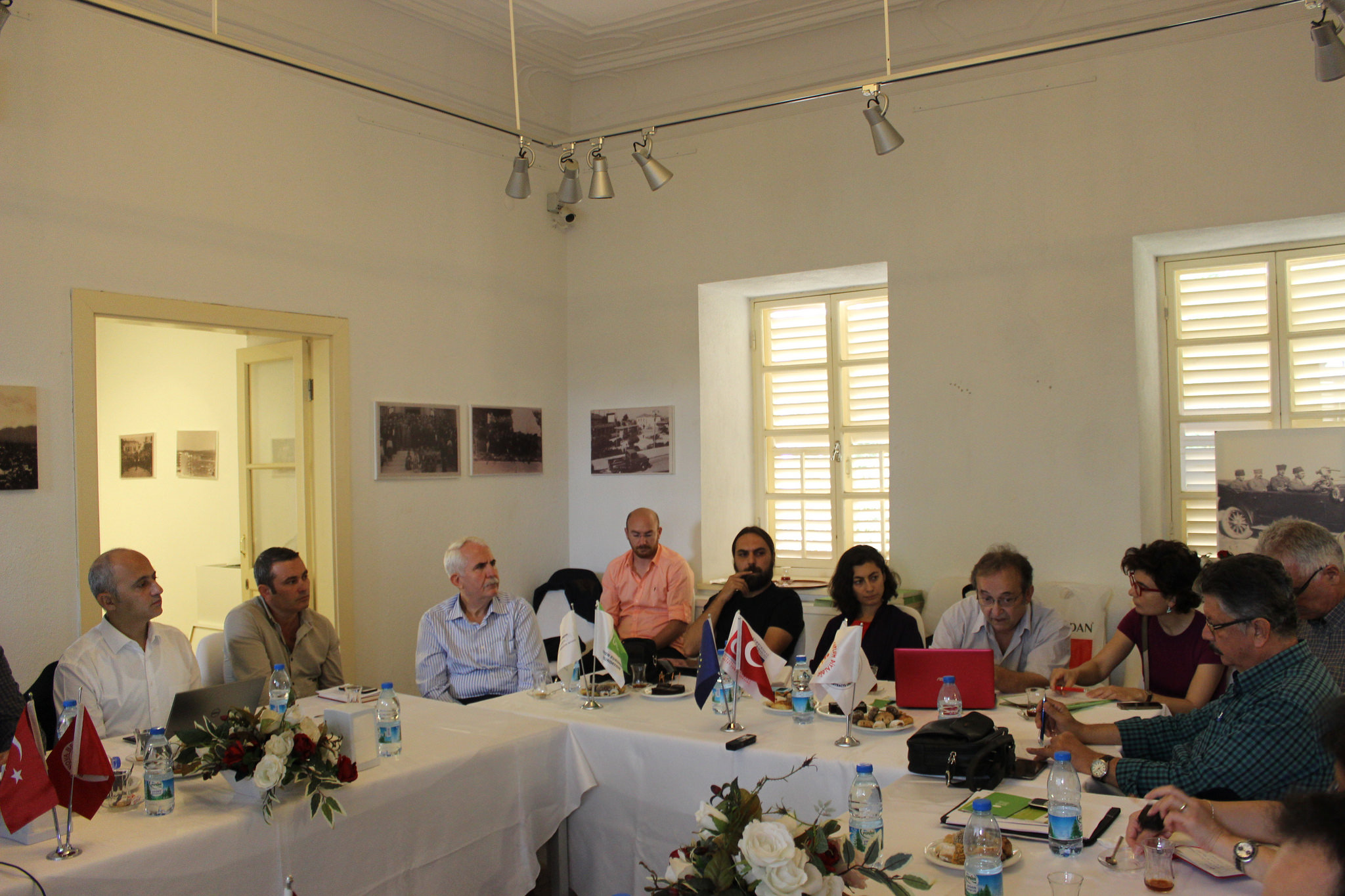The local visit to İzmir of the project “Green the Climate, Green the Economy”, which has been conducted jointly by the Green Thought Association, Sabancı University’s Istanbul Policy Center (IPC) andt the Green Europe Foundation, was hosted by the Bornova Municipality on Thursday 13 October.
Renewable energy experts, public health specialist doctors and private sector representatives from İzmir, Seferihisar, Edremit and Bornova municipalities and Ege and 9 Eylül Universities and also environmental activists around İzmir came together to discuss energy cooperatives in Turkey in a round table meeting.
The current state of renewable energy policies in Turkey and its issues were discussed at this round table meeting and the biggest challenge ahead of Turkey’s energy transformation was identified as heavy bureaucracy and legal barriers for both individuals and municipality initiatives. Another topic was high investing giant companies replacing the individual consumers, who can not take required burdens and can not get involved with in the processes as decision makers. It has been stated that with big investments to centralised energy production, even if it is in the form of renewables, a real energy transformation will not happen. Moreover, public backlash might create anti-renewable sentiments. Reduction of bureaucracy, removal of legislative barriers and incentives for individuals, local cooperatives and municipalities, were proposed as solution proposals.
The project “Green the Climate, Green the Economy” iis being implemented in the framework of the Civil Society Dialogue Programme which is financed by the Republic of Turkey and the European Union. As part of the project, in the framework of green economy, a study was conducted, which has the goal of proposing concrete policies to mitigate climate change by reaching the reduction and adaptation targets. This study focuses on three important areas, from the perspective of climate change and the economy: energy, city and land use. It compares best practices from EU countries and from Turkey and discusses the further possibility of implementing good examples from the EU in Turkey.


